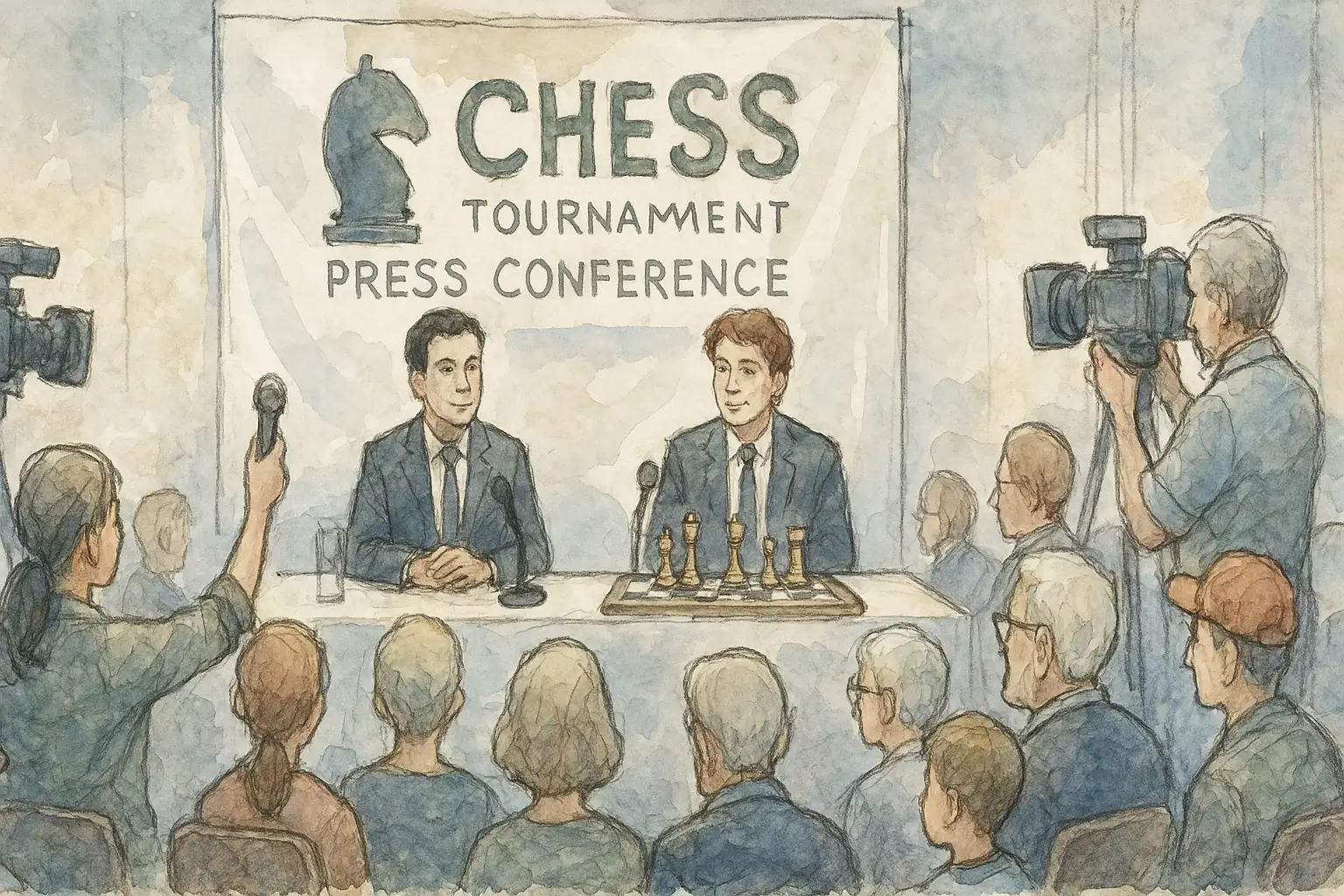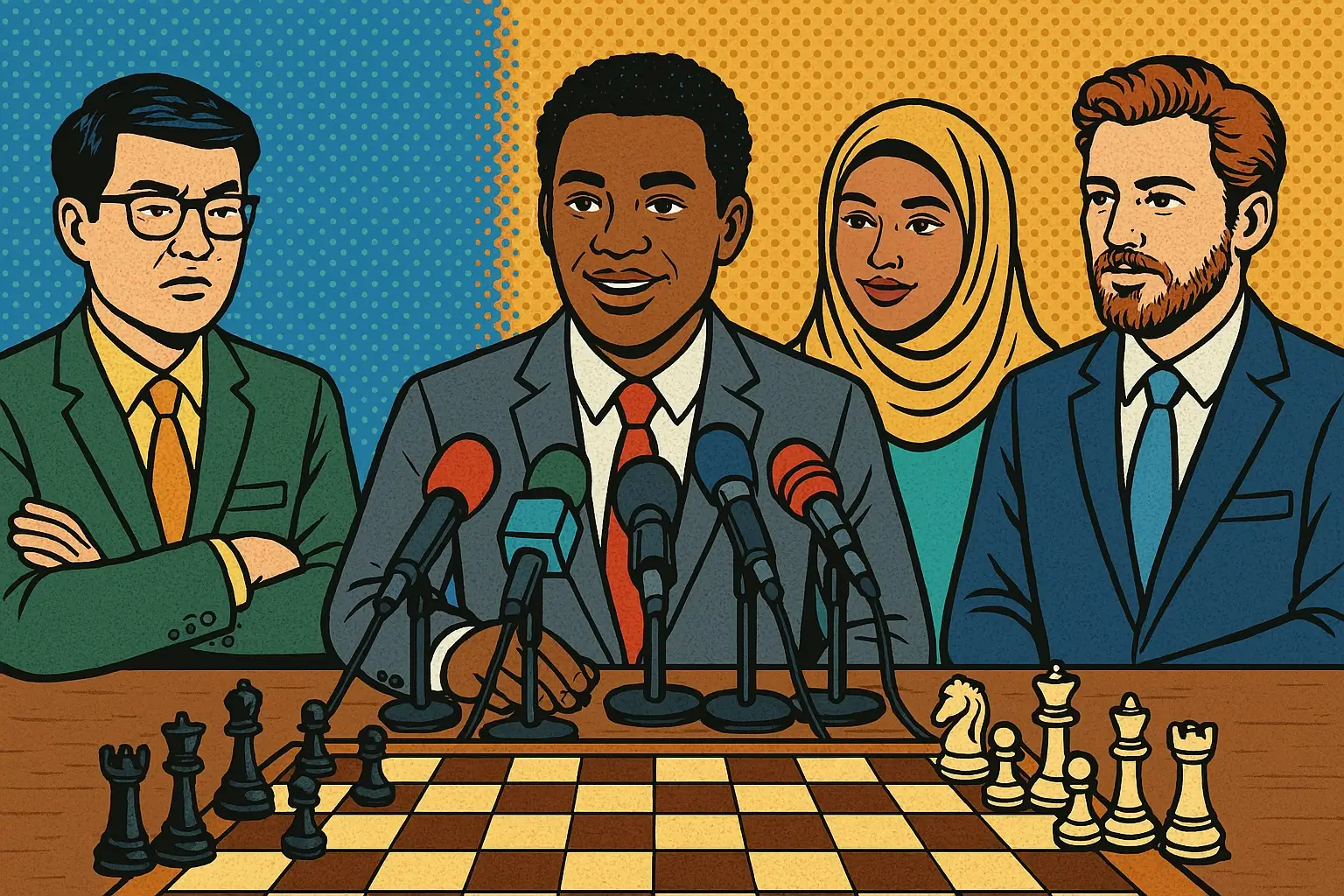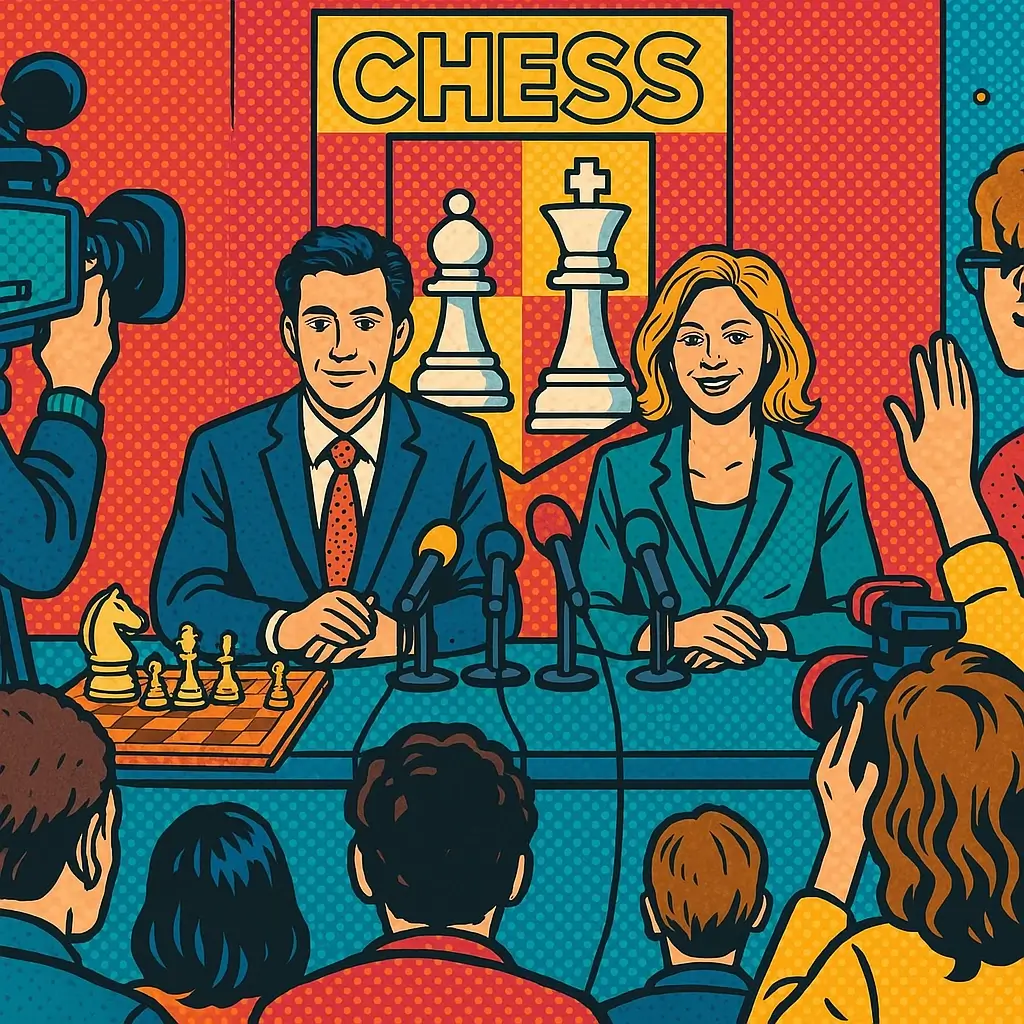Why Press Conferences Matter in Chess
Press conferences in chess serve various functions: they instruct, inform, make players known, help visualize the various actors in the ecosystem, and are one of the most anticipated activities by the public.
They help grow the chess ecosystem.

What Characterizes Press Conferences?
Press conferences or media briefings are not just a simple formal activity in which organizations, leaders, representatives, or individuals address the media to communicate information, answer questions, or make statements on particular topics. They also serve for actors in a specific industry or sector to express their individual interests, behaviors, or attitudes; and, furthermore, for the public, they are the best way to learn, educate themselves, and immerse themselves in a particular topic or be part of a culture.
In general, press conferences are characterized by:
-
Providing immediate updates on a topic or issue.
-
Controlling the conference environment, as the organizers usually manage the narrative.
-
The rapid and broad dissemination of information through various media outlets.
-
The direct interaction between speakers or interviewees and the media.
Press Conferences in Chess
In the case of chess, let us remember that it is a sport officially governed worldwide by FIDE, which has a Disciplinary and Ethics Code that outlines the conduct of players and FIDE members in order to safeguard the reputation of chess and the values of Olympism—that is, a life based on the joy of effort, the educational value of good example, social responsibility, and respect for fundamental and universal ethical principles.
In the accreditation of media for the 2024 World Championship between Ding Liren and Dommaraju Gukesh, as in many past championships, FIDE also required that media representatives have an impeccable record of ethical conduct and integrity, in line with the Code of Ethics of the Society of Professional Journalists and the values of the IOC and FIDE.
Let us recall that there have been countries, such as Russia and Belarus, and players—the most famous and somewhat recent case being Sergey Karjakin—who have been sanctioned by FIDE precisely because it was considered that they violated the Disciplinary Code. There are even elite players who prefer not to express their opinions openly in order to avoid harming their careers.
Despite all this regulatory context, in which all participants in chess press conferences at world championships must be careful about what they say or how they say it, there are several reasons why these activities are essential to the chess ecosystem.

1. Press Conference as a Showcase for the Entire Chess Community
Chess press conferences, unlike a simple interview, include as many actors as possible from the world of chess—players, sponsors, media, audience questions via the media, organizers, official institutions, etc. And what is exhibited are the intentions of each actor in that ecosystem.
It is also one of the ideal moments not only to witness and see all members of that community but also to appreciate that cultural niche, as well as the internal disputes toward which that ecosystem tends, which altogether helps to form or generate public opinion. If everything goes well during the press conference, the public image of chess in general is improved.
All the actors join the party: the media, in addition to their press obligations, take the opportunity to introduce themselves to a broader audience, sponsors promote their brand, chess GMs are the center of attention of the event, while the public enjoys, learns, and gains insight from the event.

2. Chess Press Conferences for the Education and Training of Children and Youth
In a game in which the mental and physical exhaustion of the players usually represents a high intellectual demand, beginners, such as children and youth, tend to be those with the best development and learning opportunities.
Analysts and chess grandmasters explain their strategies or key moments in the games, improving the audience’s understanding. This formative aspect can attract more players and chess fans.
Moreover, they not only learn the reasons the chess player had for making a specific move on the board, but also, during a press conference, the behavior and image of the main actors on the scene—that is, players and media—become a fundamental part of the training of these newcomers.
This is so because, in general, public events amplify the collective emotional and cognitive echo, in which experiences shape the beliefs and perspectives of society. And live communication or broadcasting improves the credibility of the chess ecosystem and renews the audience’s emotional commitment to chess.
Girls, boys, and youth, fans and other spectators, will have memorable experiences of their favorite players (Carlsen, Judit Polgar, Caruana, Aleksandra Kosteniuk, Nepo, Anish Giri, Hikaru, Nepo, Grischuk, Nodirbek, etc.) generated during the exchange of opinions in press conferences.

3. Press Conference for the Development of Social or Interpersonal Skills
Press conferences are a great platform for chess players to develop social skills: communication, sportsmanship, empathy, understanding, self-awareness, professionalism, respect, creativity in responding, stress or anxiety management, patience, etc. Through them, we learn a bit more about the personality of the players and their skill and confidence in handling public scrutiny.
During the game, we only see some more or less expressive gestures, but during chess press conferences, we’ve come to know the humorous and direct side of Alexander Grischuk and Levon Aronian, the open and also direct side of Hikaru Nakamura; players like Sergey Karjakin and Ding Liren won the public’s approval for their kind or even tender demeanor; Fabiano Caruana has always stood out for his balanced or focused responses.
Players learn to be part of an ecosystem in which they are the main stars. They are required to develop communication and social skills. They learn to swim in unfamiliar waters. We’ve seen how, in the face of defeat, some choose not to participate in the scheduled press conference, while others are better prepared to face such situations and respond with great competence.
In all kinds of games, like chess, there are winners and losers, but there are top-level chess players who have stood out for being complete as people or individuals. Moreover, we have been pleasantly surprised by GMs who have learned to carry themselves very well thanks to their ongoing participation in press conferences. And all of that is a crucial part of personal growth.